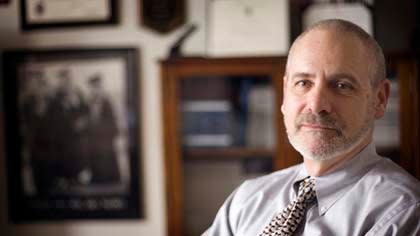Finding my writer’s voice: It doesn't matter where you start, only that you finish
Reading was a struggle when I bothered to try at all. Writing was not even an option.
If you can't read in this society, you are truly out of the mainstream. Think about the things you can’t do, or aren't allowed to do, without being able to read.
The grammar I learned from my unschooled, rural Southern family was as removed from standard grammar as bluegrass is from Beethoven. My father did not complete second grade, my mother left middle school to work, and when they divorced, the aunt I lived with was loving but not literate.

My first two years of elementary school were ‘social promotions.’ In third grade I was moved from the special to the regular reading circle. Instead of being an accomplishment, it was humiliating. I could only wonder “Why is the teacher doing this — she knows I can’t read.” By fifth grade I was still reading below grade level.
A teacher who made a difference
But two years in Mrs. Betty Burnett’s class made all the difference. She gathered about eight of us into a separate learning circle that required remedial, then regular, and ending with accelerated classwork. Mrs. Burnett expected our best and showed us how to give it.
More: Charles Alan Lyles: We can heal, if we take time to listen. A family story.
After her class, I could read at an advanced level and could perform math beyond my grade. But there were defects in this progress — I still could not spell. My grammar and writing remained painfully substandard.
Middle and high school English classes were baffling — where did these grammar rules come from and how did the other students know them? They led to sentences that sounded wrong to me (they weren’t).
More: Fayetteville CEO and veteran: From being unable to read to entrepreneur.
My mom, in desperation, arranged for a special meeting with my 7th grade math teacher. He explained the logic behind English in terms of math (and to warn me that math alone would not get me through school). It did not work. I still experienced standard English as a second language … arbitrary and confusing.
Fortunately, the high school I attended stressed math and science.
There is only rewriting
Hiding my language and writing deficiencies ended when college began. Freshman composition remains the worst grade I received in college or after. The chair of the English Department’s feedback in my sophomore year was “Lyles, you are a p***-poor1 writer.” I agreed and saw no point in attempting to improve … it was what it was (or so I assumed). The way I approached it, writing in higher education was all pain, no gain.
After college, my first (real) job required that I write formal memos. Mine were routinely returned with extensive red corrections — this was before computers in the workplace. And that is where my writing or, more accurately, avoiding writing stopped until graduate school.
Advice from a program chair offered a path to a solution: “There is no good writing, there is only good rewriting.” If my written work was ever going to improve, I now held the key … I would “just” need to commit to many cycles of rewriting until it became good enough.
“Just rewrite” sounded simple, but when I tried, I realized that what I was doing lacked direction and destination. Then, I did not know how to start, how to rewrite constructively, how revisions to a document might look, or even when enough is enough. An example would have helped. Instead, I used trial and error.
Worth it
Now? Writing is merely work.2 What I produce is still not great, but with effort it improves. On a 1 – 10 scale, I score my writing at ~ 5.5 and rewriting at ~ 9.0. My drafts look like a Jackson Pollock painting. However, as Pollock explained “The result is the thing — and — it doesn’t make much difference how the paint is put on as long as something has been said. Technique is just a means of arriving at a statement.”3
Now, I treat my writing as clay and remold … seek feedback … add … take away … and reorganize. Repeating this until the writing is in final form, and only then submit it for possible publication.
After five academic degrees, I remain a poor speller grateful for spellcheck.
Apparently, there are limits to change but not to workarounds. Having my voice heard makes the journey and the effort worth it.
Charles Alan Lyles is the Henry A. Rosenberg Professor of Government, Business and Nonprofit Partnerships in the University of Baltimore’s College of Public Affairs. He was born in Rowan County and spent his early life with grandparents and relatives in Rockwell and surrounding areas..
Notes:
1 Merriam Webster. p***-poor: very bad, extremely poor. https://www.merriam-webster.com/dictionary/piss-poor
2 Steven Pressfield. 2015. Do the Work: Overcoming Resistance and Getting Out of Your Own Way. Black Irish Entertainment LLC. ISBN-13: 978-1936891375
3 Donald Wigal. Pollock: Veiling the Image. Parkstone Press, New York. p. 74 ISBN 978-1-78310-748-3
This article originally appeared on The Fayetteville Observer: ‘The result is the thing’: My bumpy road to writing
